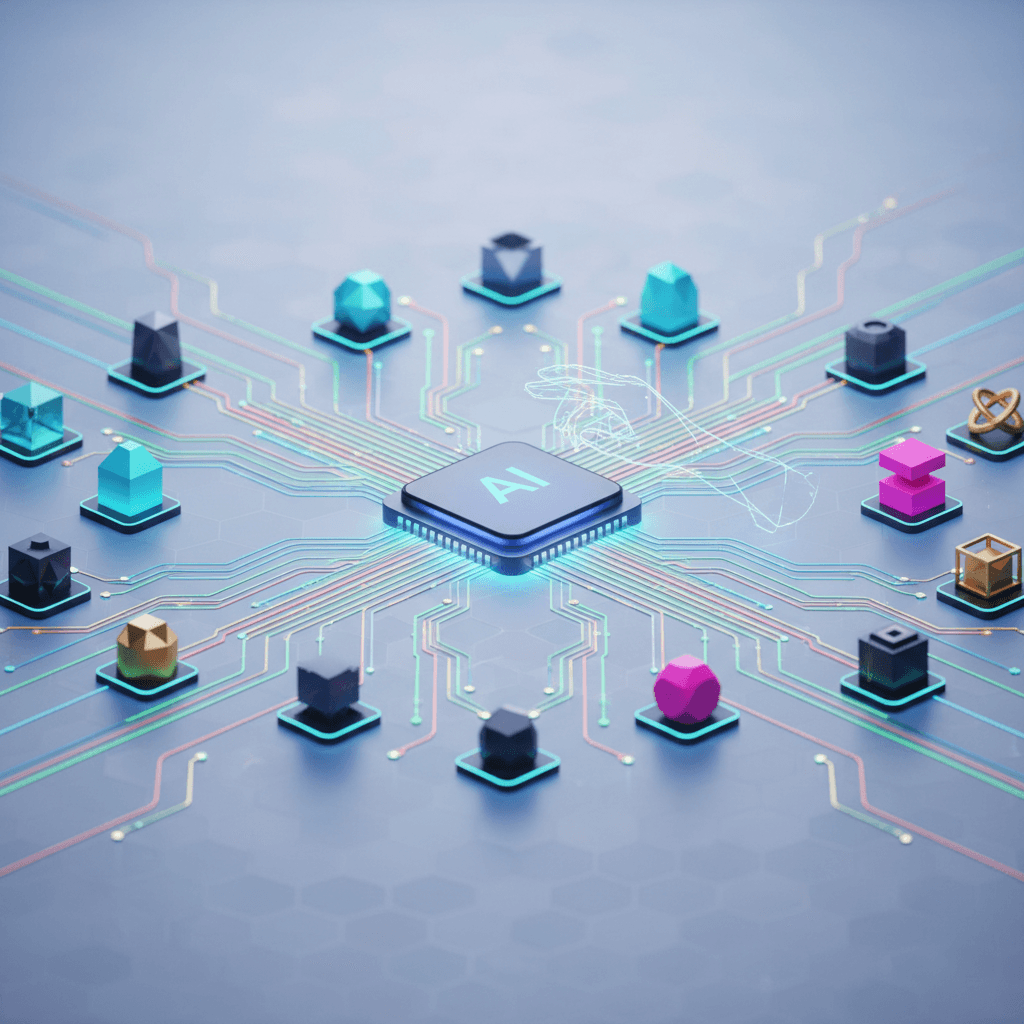OpenAI Adopts Rival's Protocol: Developer Mode Unifies AI Tool Integration for ChatGPT
OpenAI's embrace of a rival's open protocol empowers developers to deeply integrate custom tools into a unified AI ecosystem.
September 11, 2025

OpenAI is rolling out a significant new feature for developers, introducing an official "Developer Mode" for ChatGPT. This new mode, currently in beta for Plus and Pro subscribers, provides full client support for the Model Context Protocol (MCP), a move that signals a major strategic shift towards interoperability in the artificial intelligence industry. The feature allows creators to directly integrate their own custom tools and services into the ChatGPT interface through a new "Connectors" tab, representing a substantial leap beyond previous integration methods like plugins and custom actions. By adopting an open standard for tool use, OpenAI is empowering developers with more direct control and paving the way for a more unified and competitive AI ecosystem. This development is not to be confused with the unofficial "jailbreak" prompts that have circulated under a similar name; this is a sanctioned, powerful toolset aimed squarely at the builders and innovators shaping the future of AI applications.
The new Developer Mode fundamentally changes how external tools can interact with ChatGPT. Its core is the integration of the Model Context Protocol (MCP), an open-source standard designed to create a universal language for AI models to communicate with APIs and other external services.[1] Previously, developers wanting to connect a service to ChatGPT had to work within OpenAI's specific frameworks, such as building a custom GPT with defined actions or developing a plugin. The new mode simplifies and standardizes this process. Developers can now host their own tools on a remote MCP server and, with a few clicks in the ChatGPT settings, add the server's URL as a new connector.[2] Once connected, ChatGPT can discover and invoke the tools available on that server dynamically within a conversation, allowing for deep, real-time integration of proprietary databases, internal company APIs, or any novel service the developer creates. Supported protocols for these connectors include SSE and streaming HTTP, with options for either OAuth or no authentication, providing flexibility for different security needs.[3]
The decision by OpenAI to embrace the Model Context Protocol is perhaps the most significant aspect of this announcement. MCP was first introduced by rival AI lab Anthropic as an open standard to solve the growing problem of fragmentation in the AI tool ecosystem.[1] Before MCP, developers had to build bespoke integrations for each AI model and platform, a time-consuming and inefficient process that encouraged lock-in to a single provider's ecosystem.[4] By adopting this common protocol, OpenAI is signaling a move away from proprietary systems and toward a future where tools can be built once and used across any MCP-compliant AI model.[4] This industry-wide shift towards standardization lowers the barrier to entry for developers and fosters a more competitive environment where AI platforms must compete on the quality of their models and user experience rather than the exclusivity of their toolsets. It allows for a "universal remote control" for AI, enabling a single assistant to interact with a vast array of services without needing custom-built integrations for each one.[4]
This powerful new capability is being met with considerable excitement from the developer community, though its beta status means early adoption involves exploration and troubleshooting. The practical workflow allows for a more direct and potent connection between a developer's services and the reasoning capabilities of OpenAI's models. Early discussions on developer forums indicate that builders are actively experimenting with the feature, connecting their own MCP servers and testing the limits of tool invocation.[5] Some initial technical hurdles have been noted, such as specific requirements for the data types that tools can return, which is typical for a beta release of this complexity.[5] Nonetheless, the overarching sentiment is one of opportunity. The move empowers solo entrepreneurs and advanced users to build the kind of autonomous workflows and agentic systems that were previously much more difficult to implement, potentially leveling the playing field between individual innovators and large enterprise teams.[6]
In conclusion, the introduction of an official Developer Mode with full MCP access marks a pivotal moment for OpenAI and the broader AI landscape. It moves beyond simply adding new features and represents a fundamental change in philosophy, prioritizing open standards and developer freedom over a closed ecosystem. This provides developers with unprecedented control to integrate bespoke tools directly into ChatGPT, fostering innovation and enabling the creation of more powerful, personalized AI assistants. For the industry at large, OpenAI's embrace of a protocol pioneered by a competitor underscores a maturing market where interoperability is becoming a key driver of progress. As this feature moves from beta to full release, it is poised to accelerate the development of a diverse and interconnected ecosystem of AI-powered applications, ultimately benefiting both creators and end-users alike.